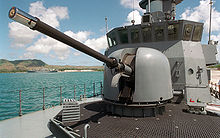Why not, here's my excuse for being here. Had a gradfather that was a tinkerer, he would liberate odd parts from his work and use them to make "things"for his grandson. These "things" rarely had any practical application, but they fascinated me with how machines worked. He once gave me something that had a bunch of bevel gears and I studied it for days and learned what an open differential was and how it worked. If it was mechanical, I had to learn its secrets and I didn't care what it was, car, chainsaw, garage door springs, washing machine, etc... I grew up at that point in time where The Voke (vocational class) in high school was considered the dumping ground for the losers or future felons. My parents had high hopes I would be a brilliant success in some fancy college, but instead, I went to full time work as soon as I graduated H.S. because I didn't feel that college was a good idea at 17.
Several years later, I finally went to college, for gunsmithing and the world of machine equipment and welding opened my eyes. I bought equipment when I could afford it and often sold it when I couldn't, but the love of making things for myself would never go away. Fast forward through the years and a late in life (very late) 7 year stint in the Navy, and I found myself walking out the door in uniform and walking back in wearing civilian clothes. After a couple of years as a contractor, all those odd jobs in the civilian world, gunsmithing, welding and general mechanical aptitude flowed together as a shot as an engineering technican for the Department of the Navy. I got the billet and that's where I'll be until I retire.
BTW, did I mention I fix cannons for a living

!!!
View attachment 263569 God is good! They actually pay me to do this.
I have been constantly upgrading and adapting my equipment, as I can afford to, so that I could wind up with as much machining capabilty for my needs. I will never be able to honestly label myself as a machinist in the true sense, but I will say that I can operate the equipment with a low probability of physical injury or screwing up too horribly. What was once bought to do gunsmithing has transitioned into fueling a love of RC scale model boats, mainly warships, go figure.
I am also on that other forum, but use it more as a source of information, here there is a great sense of camaraderie and everybody is enjoying themselves at whatever skill level they are. I like it here and hope to share my interests and get ideas from others.
Mark




